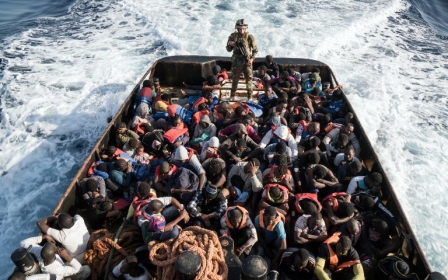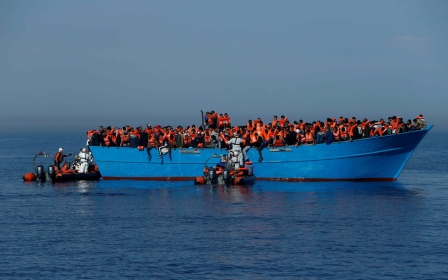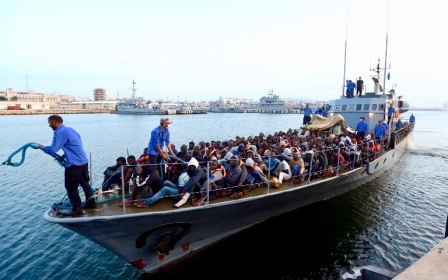35 migrants feared drowned off Libya: Coastguard
Thirty-five migrants, including seven children, were feared drowned after their inflatable boat sank on Saturday off the Libyan coast, the coastguard said.
Eighty-five migrants, including 18 women, were rescued with the help of fishermen who alerted the coastguard, said Issa al-Zarrouk, a coastguard official in Garabulli, 60 kilometres (40 miles) east of Tripoli.
Navy spokesman Ayoub Kacem said the boat sank six nautical miles northwest of Garabulli, and 10 fishing boats took part in the rescue.
The rescued migrants were from countries including Nigeria, Senegal, Cameroon, the Ivory Coast and Ghana, Kacem said.
Nigerian hairdresser Vivian Effoussa described watching, horrified as fellow passengers fell into the sea.
"The boat we entered was leaking," said Effoussa, who attempted the crossing to Europe after struggling to support two children back home.
Gradually, gradually, we see ourselves inside the sea. Everybody, we're falling inside, dragging each other. They even pulled my hair, dragging me
- Effoussa, Nigerian hairdresser
"All of a sudden… the water was [coming] inside. Everybody started shouting," she said, speaking in English.
"Gradually, gradually, we see ourselves inside the sea. Everybody, we're falling inside, dragging each other. They even pulled my hair, dragging me."
"Really, I didn't think the sea was big like this," Effousa said, adding that, had she known, she would not have come.
Human traffickers have exploited years of chaos in Libya since the 2011 uprising that toppled and killed dictator Moammar Gadhafi to boost their lucrative but deadly trade.
Tens of thousands of migrants have resorted to paying smugglers to cross the Mediterranean Sea from Libya to what they hope will be a better life in Europe.
Nearly 77,000 migrants have landed in Italy since January, up 15 percent on the same period in 2016.
Altogether, at least 2,247 people have died or are missing after trying to cross the Mediterranean to Europe this year, the IOM says.
Middle East Eye propose une couverture et une analyse indépendantes et incomparables du Moyen-Orient, de l’Afrique du Nord et d’autres régions du monde. Pour en savoir plus sur la reprise de ce contenu et les frais qui s’appliquent, veuillez remplir ce formulaire [en anglais]. Pour en savoir plus sur MEE, cliquez ici [en anglais].




